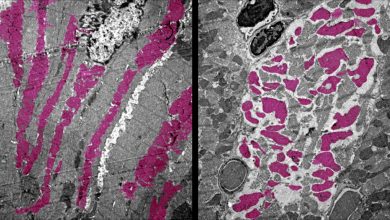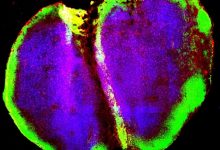
Zika Virus
Zika virus is a mosquito-borne virus and is linked to a birth defect called microcephaly. If pregnant women are infected with Zika virus, it can stunt brain development of newborn babies causing abnormally small heads in them. This condition is known as microcephaly. Adult brain cells may also be vulnerable to the virus.
Zika virus preferentially infects a particular type of immune cells called macrophages. These are a type of white blood cells engulfing and digesting infection causing viruses and bacteria.
What’s New?
A new research led by the team of researchers at University of California San Diego School of Medicine have discovered how the virus manipulates the human immune system eradicate function of macrophages. They found how zika virus switches off the genes that make macrophages function as immune cells.
“We know Zika virus destroys a number of cell types, particularly in the brain, but we don’t yet understand how it causes cells to die or malfunction,” said first author Aaron Carlin, MD, Ph.D., associate physician at UC San Diego School of Medicine. “So this loss of general gene transcription and identity we saw in macrophages could also be crucial when a neural stem cell is trying to develop into a new neuron.”
What did they do in their study?
Most of the previous studies were done using dishes of cells that had been exposed to the virus but it didn’t give satisfactory results because the cellular effects measured in a laboratory “infection” are often a mixture of what’s going on inside both infected and uninfected cells.
During their research, instead of following the same method, they developed a new technique to tag the Zika virus inside live cells as well as the mechanism for sorting tagged (infected) and untagged (uninfected) human macrophages.
“If your goal is to see what a virus is doing to a cell, you need to focus on only infected cells to get true representation,” Carlin said.
“We were surprised at just how different infected and uninfected cells looked, in terms of the genes they had turned on or off, even two cells next to each other,” Glass said. “What’s amazing is that even though they are exposed to the same environment, their responses are completely different. And now we know those differences are truly due to the virus, not any of the other events going on around the cells during an immune response.”
This new study helped in improving understanding of Zika’s effect on macrophages. Additionally, they also discovered that the virus suppresses the production of the gene in the cells by two methods.
How virus suppresses the gene production?
- First, The virus specifically blocks hundreds of macrophage genes that should be stimulated by interferon, a molecule that triggers an immune response. For example, the IFITM1 gene, which inhibits Zika virus, is expressed 73-fold less in Zika-infected cells than in neighboring uninfected cells.
- Second, Zika infection leads to general suppression of gene production because of the virus targets RNA Pol II, a crucial part of the cell’s gene transcription machinery. The loss of RNA Pol II is especially notable at genes responsible for macrophage function and identity.
Using these methods, Zika virus stops macrophages from producing many genes involved in immune cell recruitment and anti-viral defense.
The next step
Researchers are interested in using their technique for sorting the cells infected by other viruses. They will also examine cells other than macrophages which are infected by Zika virus, such as neural stem cells.






